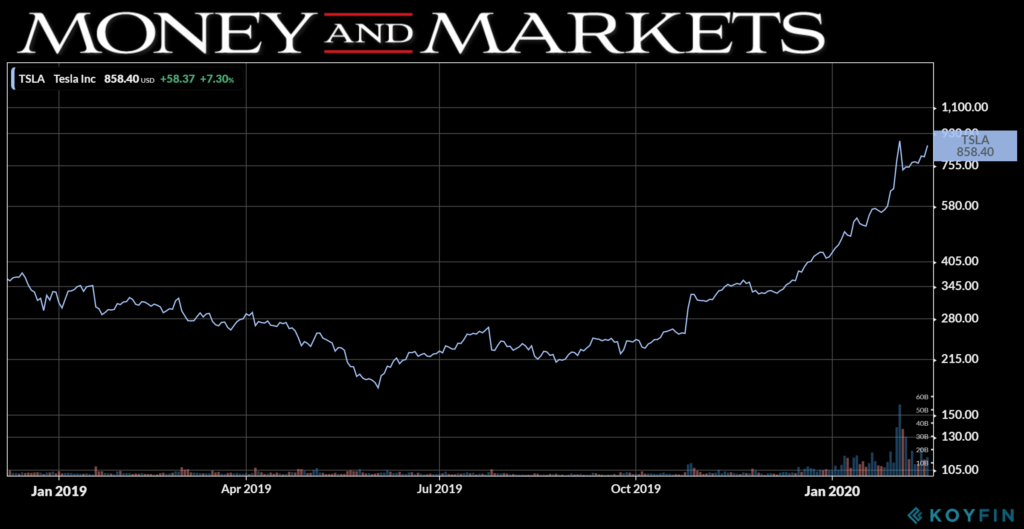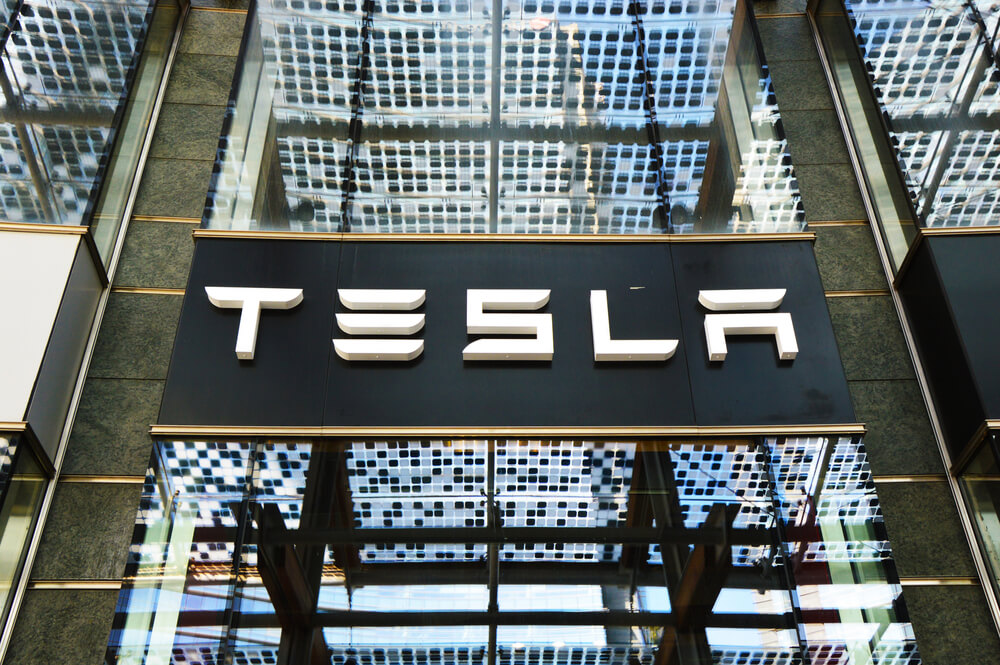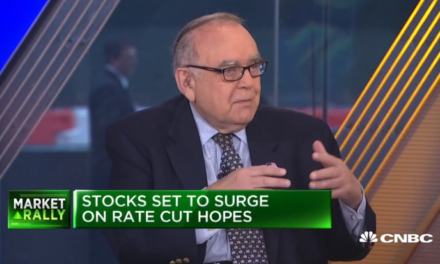When it comes to Tesla stock, we’ve been here before.
In the first week of February, shares of Tesla Inc. (Nasdaq: TSLA) hit the $900 mark — a staggering 335% jump from a low of $178.97 back in June 2019.
Wall Street analysts scrambled to raise price targets for the electric automaker but were cautious not to change ratings.
Immediately following the jump, Tesla fell off about 17% when the company unveiled a new $2 billion stock offering to “further strengthen its balance sheet.”
This time, analysts raced to call Tesla stock “dangerous” and “speculative.”
Since its initial public offering in 2010, this cycle has been extremely common.
Tesla Shares: Rinse and Repeat
Fast forward to today.
Tesla shares went back over the $900 mark Wednesday after news it is in advanced talks to use batteries from Contemporary Amperex Technology Co. Ltd. (CATL) that contain no cobalt — one of the most expensive metals in electric vehicle batteries.

In order to elbow their way to the front of the line, analysts are back at it — jumping their price targets on Tesla — again.
Analysts with Cowen Inc. (Nasdaq: COWN), Morgan Stanley (NYSE: MS), Sanford C. Bernstein & Co. LLC and Piper Sandler (NYSE; PIPR) all rushed to increase their price targets on Tesla shares.
Piper analysts raised their target to $928 from $729 — the most bullish estimate to date, according to Bloomberg.
“It’s easy to forget that TSLA sells batteries and solar power products; after all, the segment was only 6% of sales in 2019,” analysts Alexander Potter and Winnie Dong wrote in a note Tuesday. “But management says that the solar+storage business will one day rival the Automotive segment, and if this is true, then investors will eventually need to pay attention.”
Charging the Fire
This time around, it isn’t earnings or some lofty statement from Tesla CEO Elon Musk that’s driving the share price increase.
It’s batteries.
EV manufacturers usually use nickel-cobalt-aluminum (NCA) or nickel-manganese-cobalt (NMC) batteries on passenger vehicles because of their higher energy density, which is critical in determining how far an EV can drive on a single charge.
To boost the density and safety of its LFP batteries, CATL has been working on its so-called cell-to-pack technology, according to Reuters.
According to sources, Tesla plans to use the new batteries in cars made at its Shanghai plant in China. Tesla started delivering its Model 3 cars in China in December and it’s seeking regulatory approval for a longer range Model 3 to be produced there.
It falls in line with Musk’s plan to cut the use of cobalt to “almost nothing.”
Buy, Sell or Hold Tesla Shares?
Despite reporting potential delays in car deliveries due to the coronavirus outbreak in China, Tesla shares seem to have weathered the storm … for now.
But the biggest question for investors is what to do.
During the early February rally, Banyan Hill Publishing Certified Market Technician and Quick Hit Profits Editor Chad Shoop said there is no telling how high Tesla shares can go.
“Another massive rally and Tesla could still run even higher. But the great news is that these previous rallies weren’t a blow-off top for the stock,” Shoop said. “It consolidated after the huge runs, but maintained the high level.”
For now, however, Tesla is still searching for that next level to trade at. Investors would be wise to hold their positions while those not already invested should just sit back and enjoy the ride.
What do you think about Tesla’s rise? Would you buy, sell or hold? Tell us in the comments below or by emailing feedback@dev.moneyandmarkets.com.





